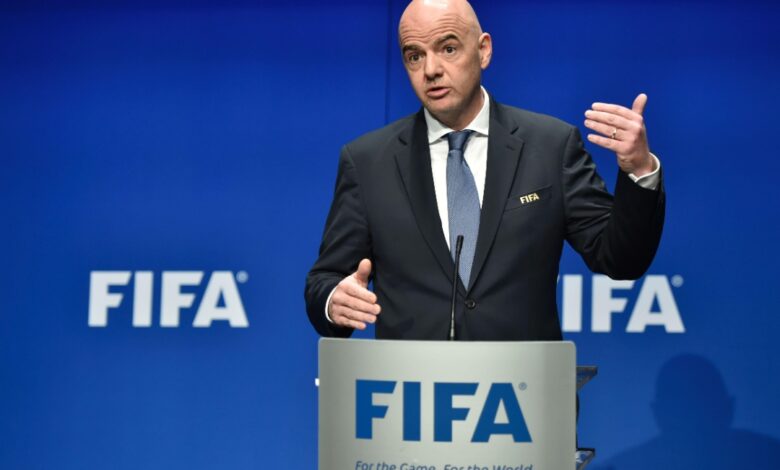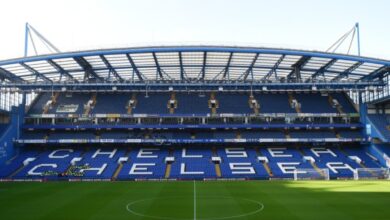🟡⚫SHOCKING NEWS: The FIFA President has announced the list of clubs participating in the FIFA Club World Cup 2029. Only one team from England will take part – and the revealed name has shocked everyone. Even head coach Enzo Maresca was furious and blasted FIFA with nine extremely harsh words

In a jaw-dropping revelation that has sent shockwaves rippling throughout the global football community, FIFA President Gianni Infantino has officially disclosed the lineup of elite clubs that will take part in the much-anticipated FIFA Club World Cup 2029. The announcement, which was expected to showcase a balanced and merit-based selection of top-performing teams, instead left many bewildered—particularly fans of English football—after it was revealed that only one club from England will be participating in this prestigious global competition. The surprising omission of other high-profile Premier League teams has ignited intense debate and controversy across social media platforms, sports news outlets, and even among players and coaches.
The decision that stunned many was the exclusion of Manchester City, a club that has dominated the English Premier League in recent years and consistently made deep runs in European tournaments, including the UEFA Champions League. In what many perceive as a shocking twist, Arsenal FC has been named as the sole representative from England. This announcement has been met with an overwhelming wave of backlash, with critics calling the move unjustified and deeply flawed.
Among the most outspoken critics is none other than Chelsea’s head coach, Enzo Maresca, who made headlines after delivering a fiery and emotionally charged response during a press briefing. Clearly incensed by the development—especially given that his Chelsea side had been making significant progress and narrowly missed out on qualification—Maresca pulled no punches. His scathing statement, now widely shared online, read:
> “This is corruption, injustice, favoritism – football deserves much better!”
The Italian manager openly questioned the integrity of FIFA’s selection methodology, expressing his deep frustration and disbelief over the criteria used to determine the final list of participants. He argued that Chelsea’s recent resurgence in form and commendable performance on the European stage warranted serious consideration. His demand for greater transparency, fairness, and accountability in FIFA’s decision-making process was echoed by numerous fans, analysts, and former football legends who have all voiced similar concerns.
FIFA, in its official response, defended its selection framework, stating that teams were chosen based on a complex formula incorporating several key factors: historical performances in continental competitions, club ranking coefficients, and overall sporting merit. However, this rationale has failed to convince many within the football ecosystem. Detractors argue that the model is inherently biased, potentially favoring clubs from certain high-profile leagues or markets, and lacks the necessary transparency to ensure credibility.
The choice of Arsenal, a club that—despite its rich history—has yet to claim a UEFA Champions League title, has raised eyebrows, especially when compared to other clubs with more impressive records in European football. Some speculate that commercial considerations, such as global brand appeal and fanbase size, may have played a role in FIFA’s final decision, rather than purely sporting achievement.
On a broader scale, the 2029 edition of the FIFA Club World Cup is set to feature 32 clubs from different continents, offering a diverse representation of footballing excellence. Among the confirmed participants are traditional powerhouses like Real Madrid, Bayern Munich, Flamengo, and Al Ahly, ensuring that the competition retains its elite status. The tournament is scheduled to be hosted in the United States, with matches planned across major cities such as Los Angeles, Miami, and New York, signaling FIFA’s ongoing strategy to globalize the sport further and tap into North America’s growing football market.
This latest development adds fuel to the long-standing debates surrounding FIFA’s leadership, transparency, and influence over global football governance. With the tournament still several years away, the decision to exclude clubs like Manchester City and Chelsea from such a prestigious event is expected to remain a contentious and widely discussed issue in the foreseeable future.




